We may earn money or products from the companies mentioned in this post. This means if you click on the link and purchase the item, I will receive a small commission at no extra cost to you … you’re just helping re-supply our family’s travel fund.
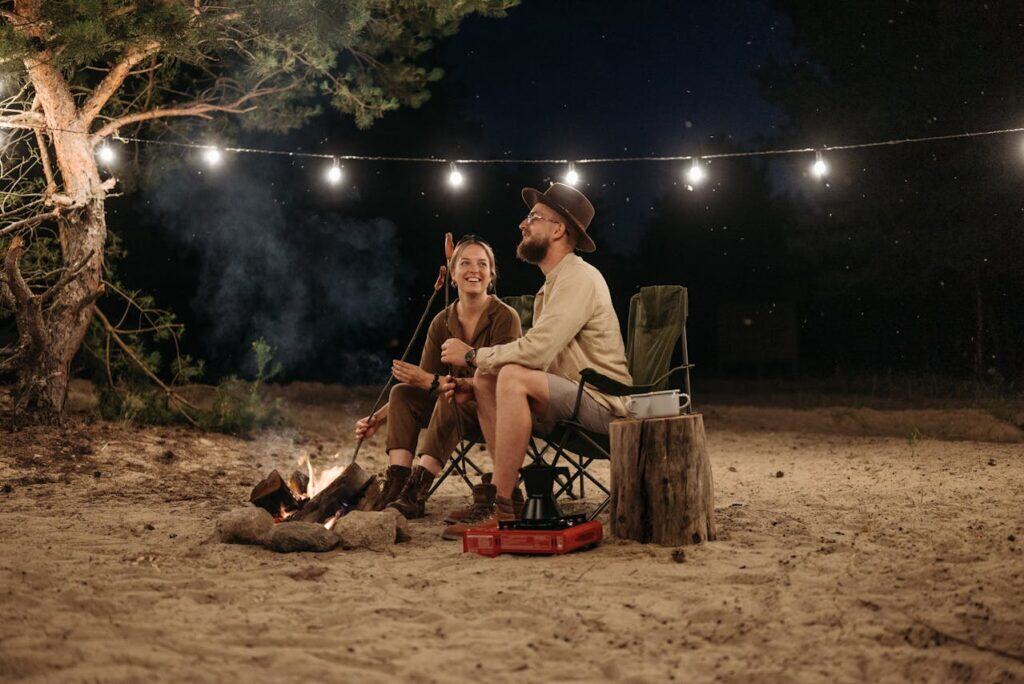
Camping always sounds simple: a tent, a sleeping bag, and some food. But the truth is, the little forgotten items often cause the biggest headaches. You might remember the cooler but leave the lighter, or pack clothes but skip rain gear. These slips can make even a short trip uncomfortable. The good news is that most of these essentials are small, easy to carry, and make a huge difference. Here are 12 camping items people forget but really shouldn’t.
1. Extra Batteries and Power Banks
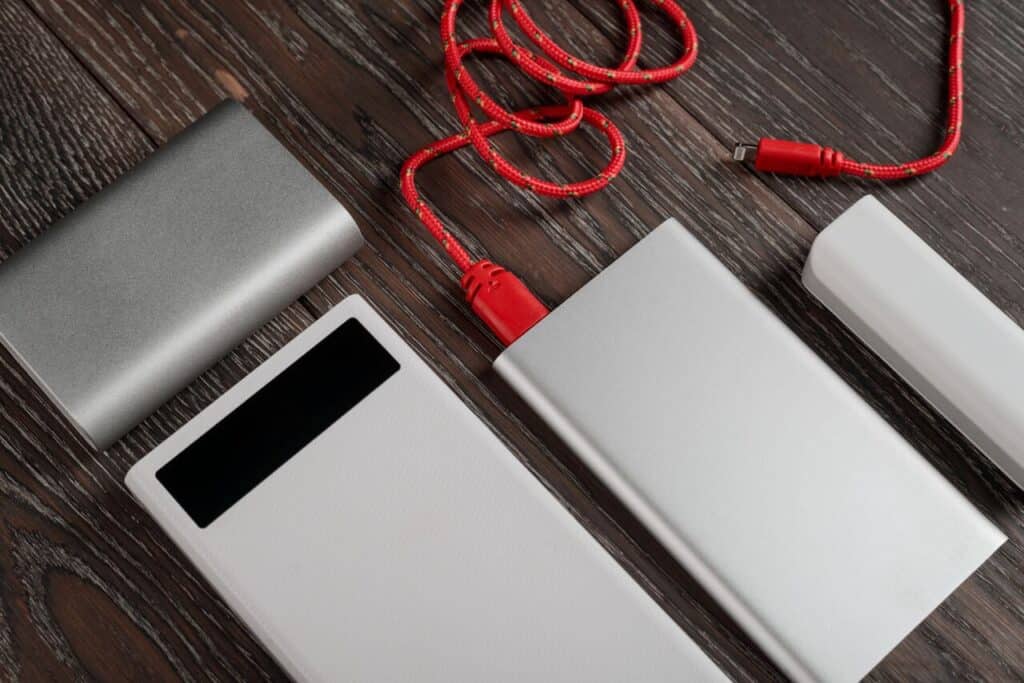
It’s surprising how often campers forget spare batteries or a charged power bank. Headlamps, flashlights, and even lanterns can drain faster than expected, especially if you use them constantly after dark. Once they die, your whole campsite becomes frustrating to navigate. Power banks also save your phone in emergencies, giving you peace of mind. Pack fresh batteries in a resealable bag to keep them dry, and charge power banks before leaving. A little extra energy source can turn a stressful night into a smooth one.
2. First Aid Kit
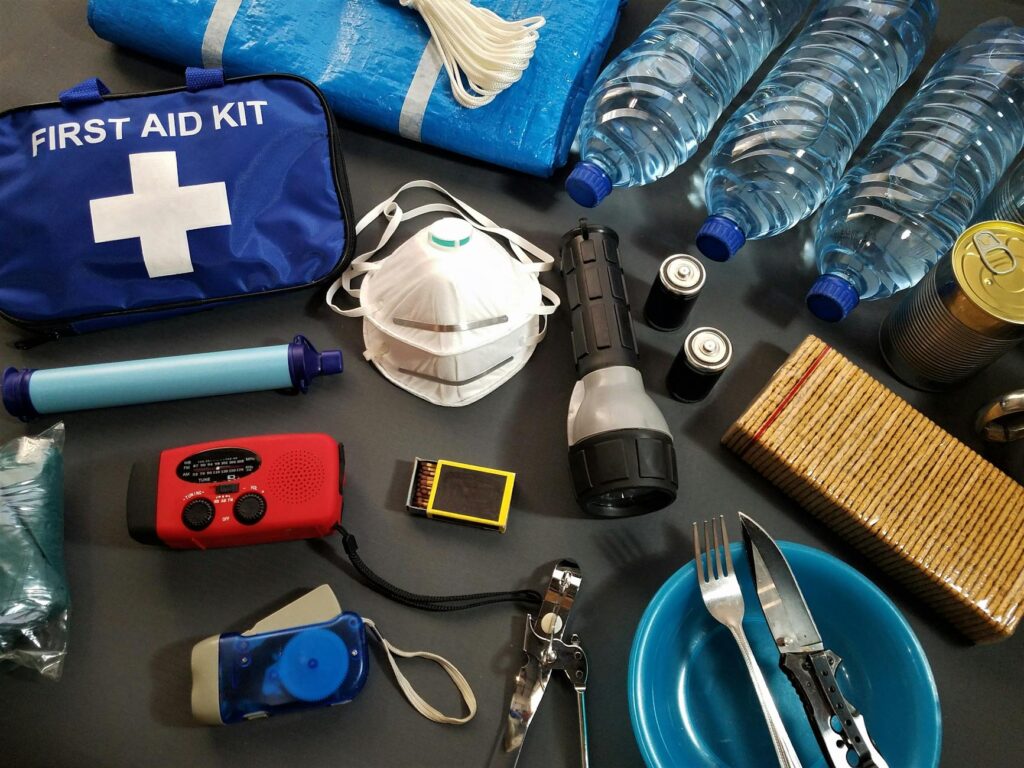
Scrapes, bug bites, or twisted ankles happen more often outdoors than we’d like to admit. A small first aid kit is one of the easiest things to overlook because you assume nothing serious will happen. But once you need it, you’ll be thankful it’s there. Stock yours with basics: adhesive bandages, antiseptic wipes, tweezers, pain relievers, and any personal medication. Toss in blister pads too, since hiking boots are unforgiving. Even a simple kit can keep a minor injury from becoming a bigger problem.
3. Fire Starters
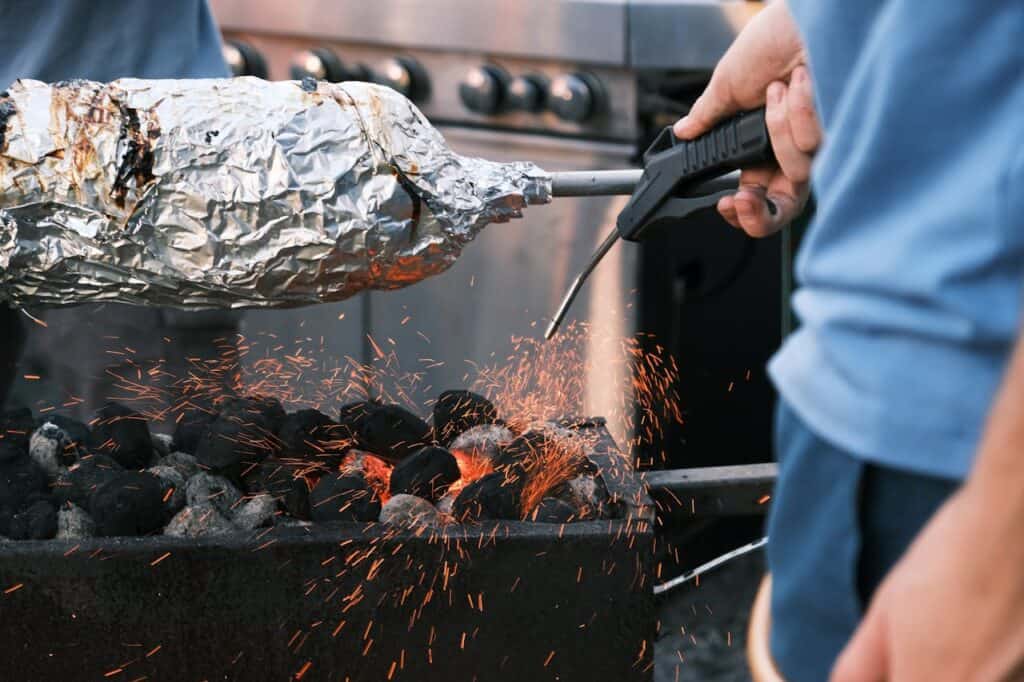
Matches or lighters are easy to forget, yet they’re essential for warmth, cooking, and morale. Damp wood or wind can make fire-building tough, so bring waterproof matches or a refillable lighter as backup. Fire starters like cotton balls soaked in petroleum jelly, or store-bought cubes, make the process quicker. You don’t want to be the group struggling in the dark while others enjoy dinner around the flames. Always store them in a sealed container to prevent moisture damage during your trip.
4. Navigation Tools
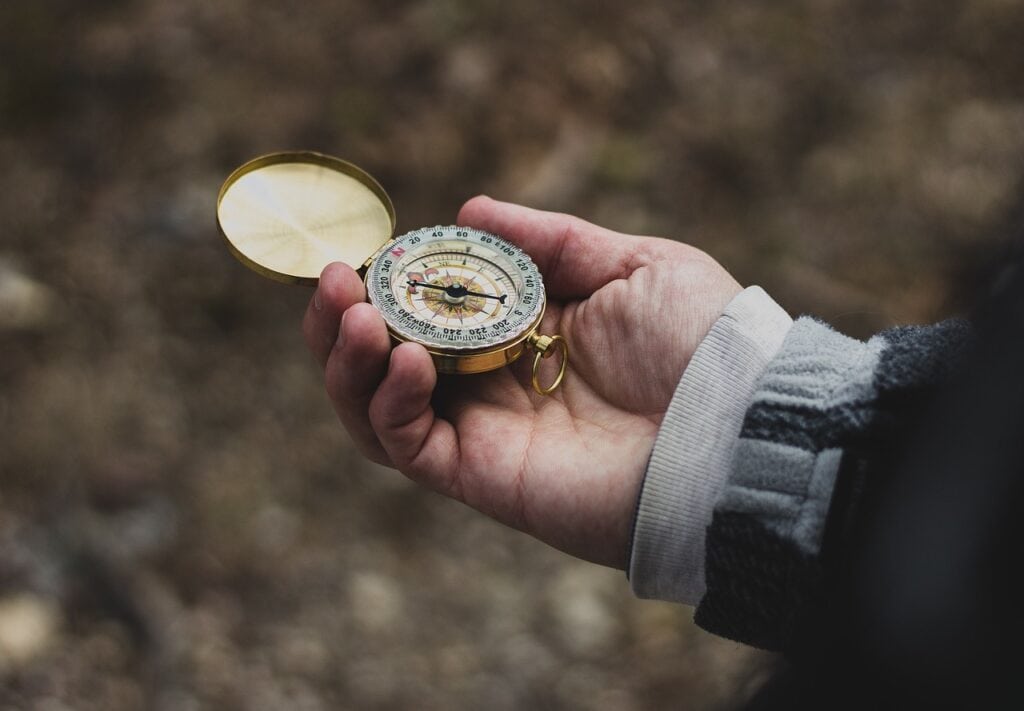
Phones and GPS apps are useful until batteries die or you lose signal. Traditional tools like a paper map and compass never fail, but many people skip packing them. Even if you’re not venturing deep into the wilderness, trails often branch unexpectedly, and it’s easy to get turned around. A basic map of the area ensures you always have a backup. It’s lightweight, requires no power, and provides confidence if technology lets you down. Navigation tools are worth the small effort.
5. Multi-Tool or Pocketknife
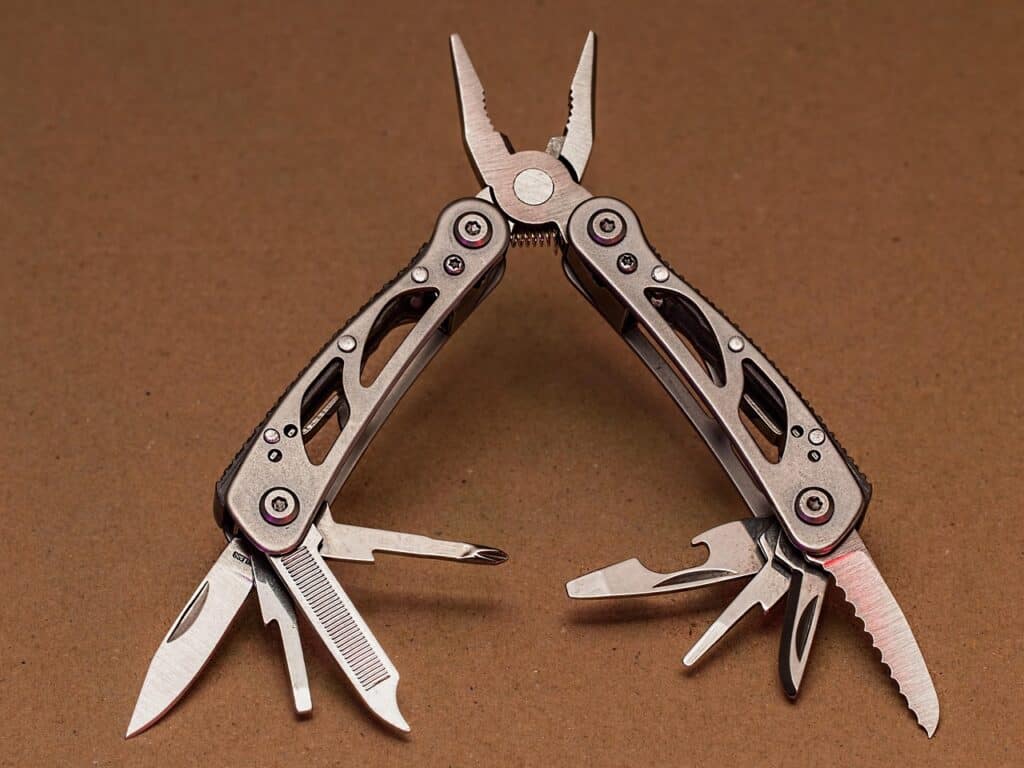
A pocketknife or multi-tool feels optional until you actually need it. From cutting rope to opening food packaging, tightening gear, or even handling small repairs, it’s one of the most versatile tools at camp. Many people leave it behind because it’s small, but its usefulness is huge. Choose a sturdy model with essentials like scissors, pliers, and screwdrivers. Keep it accessible in your backpack or pocket instead of buried in your gear. You’ll be surprised how often it saves the day.
6. Extra Layers and Rain Gear
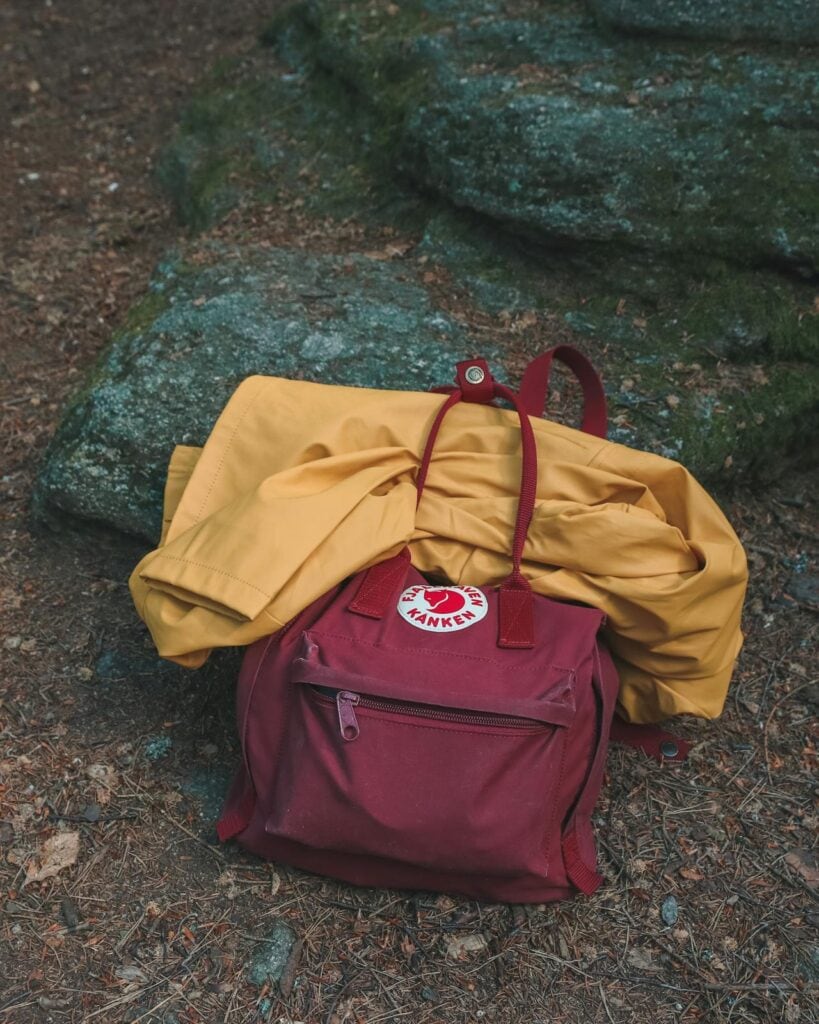
Weather shifts quickly, especially in the woods or mountains. Forgetting a rain jacket, poncho, or warm layers can ruin your trip in hours. Even if the forecast looks clear, sudden rainstorms or temperature drops are common. Pack lightweight, packable gear that fits in any bag. Synthetic materials dry faster than cotton, which holds moisture. Staying dry and warm means more than comfort; it’s a safety issue too. Hypothermia can happen even in mild temperatures when you’re wet and exposed.
7. Cooking Utensils and Seasoning
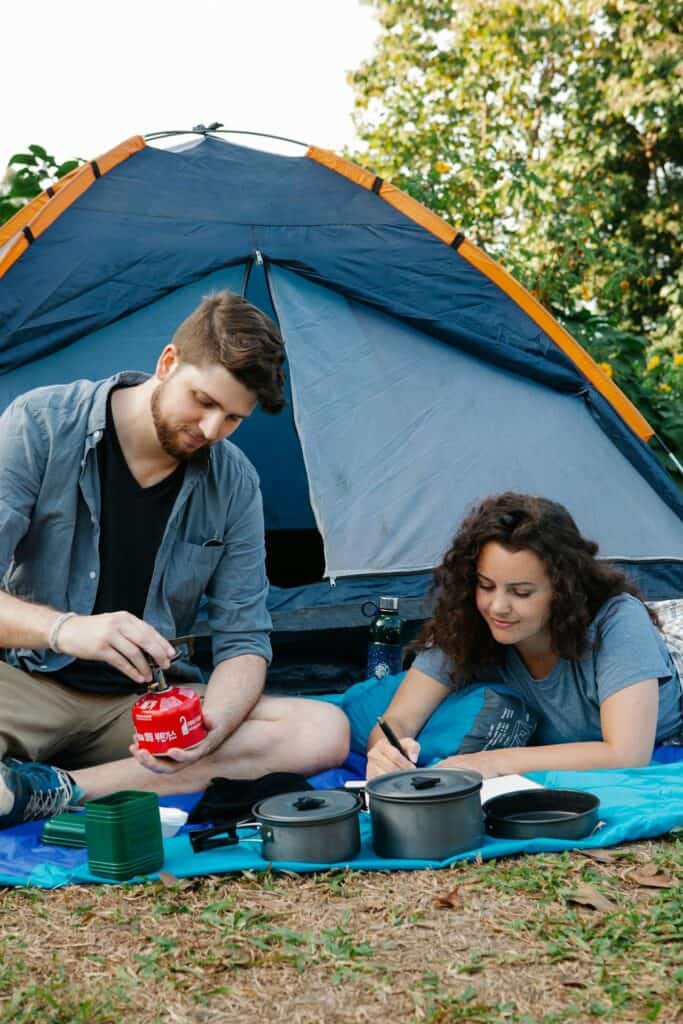
Campers remember food but often forget the tools to cook and eat it. A spatula, small pot, or even a can opener can feel trivial until you’re staring at sealed cans. Salt, pepper, and simple spices transform bland meals into enjoyable ones, making camp dinners something to look forward to. Pack a lightweight kit with utensils, a small cutting board, and seasoning in travel containers. Cooking outdoors should feel fun, not frustrating, and a little preparation makes all the difference.
8. Extra Trash Bags
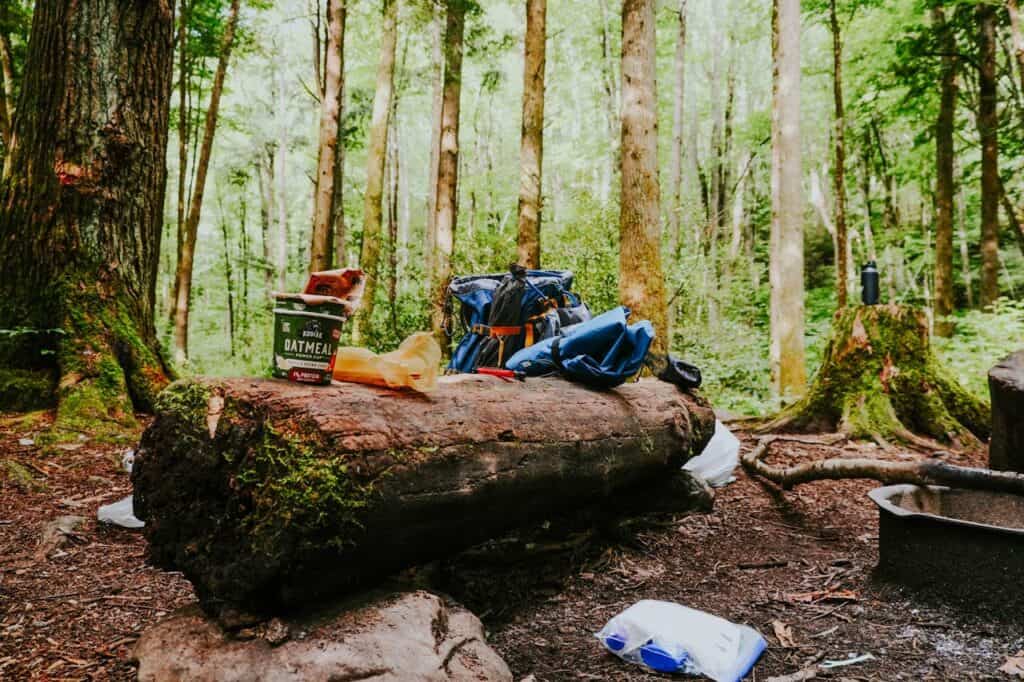
Trash bags seem minor until you’re stuck with waste and no clean way to store it. They’re useful for more than garbage too. Line them in backpacks to keep clothes dry, use them for dirty laundry, or even as makeshift rain covers. They weigh almost nothing but offer endless uses at camp. Always pack more than you think you’ll need. Keeping your campsite clean not only avoids pests but also leaves nature the way you found it, which matters.
9. Sunscreen and Insect Repellent
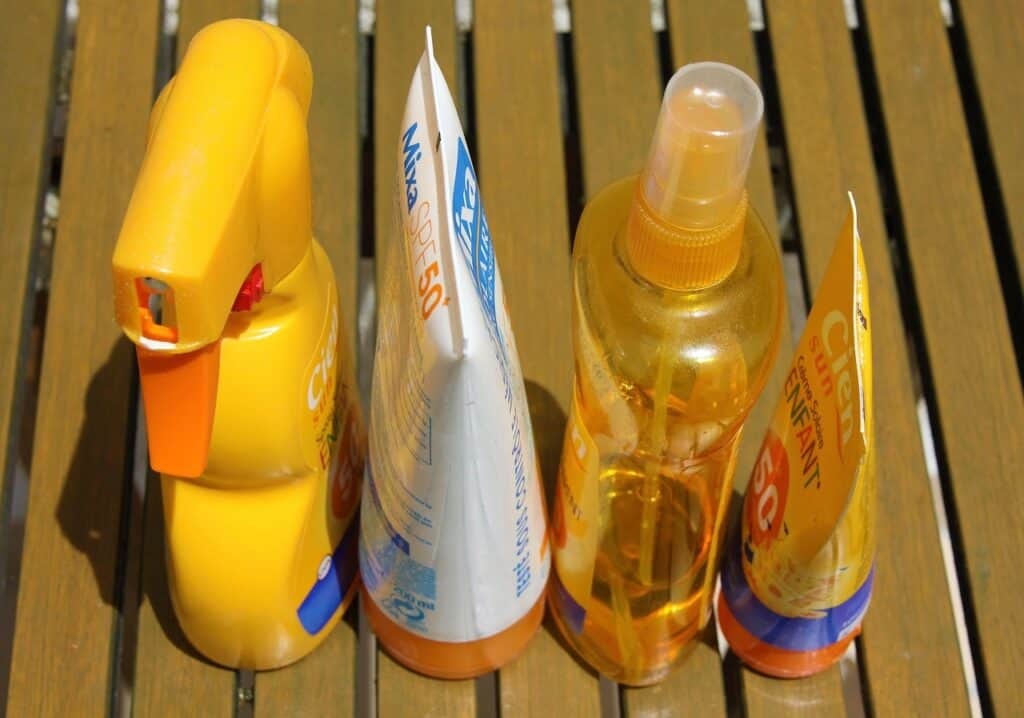
It’s easy to think about sunscreen at the beach but forget it while camping. Yet hours of sun exposure on hikes or at camp add up quickly. Insect repellent is equally important, especially in areas with mosquitoes or ticks. Forgetting either one means discomfort, sleepless nights, and even health risks. Choose a small, travel-size bottle for both and keep them handy. Protection from sun and bugs can make the difference between a pleasant trip and one you can’t wait to end.
10. Camp Chair or Seating
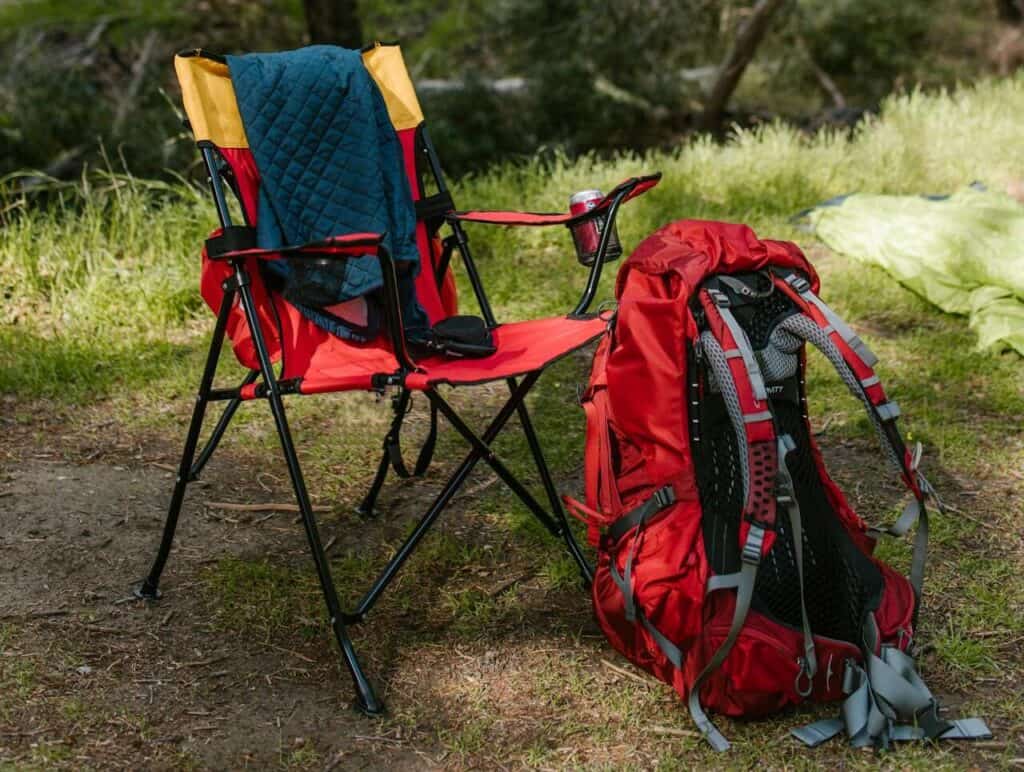
Sitting on the ground feels fine for a short time, but after hours it becomes uncomfortable. Many campers forget to bring lightweight folding chairs or a seating pad. They’re not bulky, and they turn meals or campfire time into something enjoyable rather than a struggle to find a decent rock or log. Some chairs pack down small enough to fit in a backpack. Adding one to your packing list improves comfort and lets you actually relax outdoors.
11. Headlamp or Extra Lighting
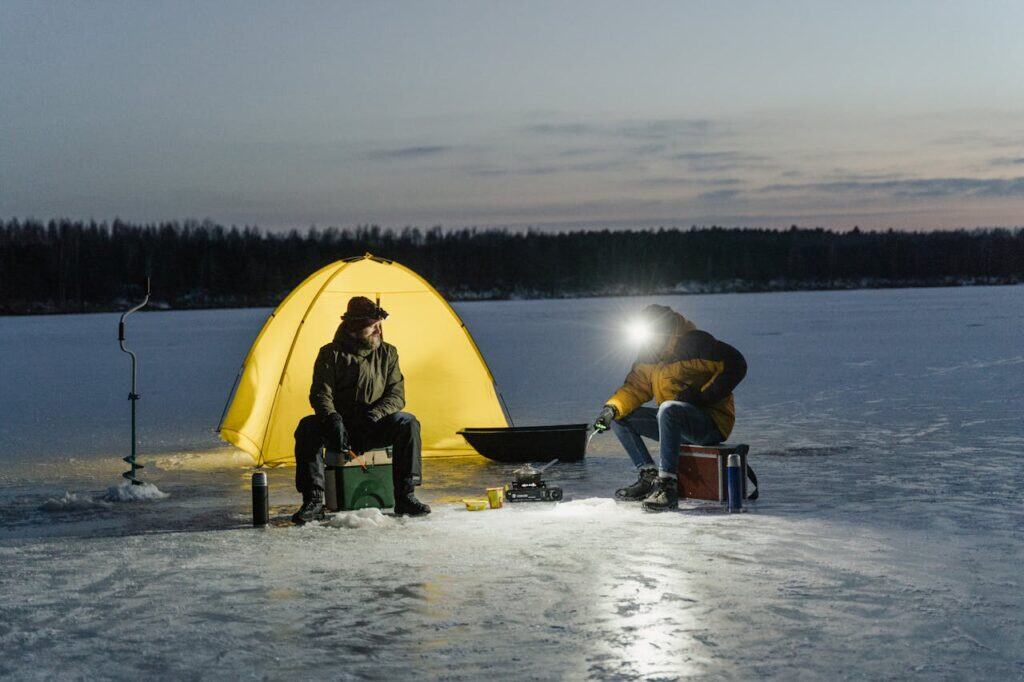
Flashlights work, but headlamps make life at camp far easier since they free your hands for cooking, setting up tents, or late-night bathroom trips. People often forget them, assuming their phone flashlight is enough. It’s not. Phone batteries drain fast, and the beam is narrow. Always pack a reliable headlamp plus backup batteries. Consider bringing a small lantern too for lighting shared spaces. Once the sun sets, good lighting turns camp chores from a hassle into something much simpler.
12. Biodegradable Soap and Towel

Cleanliness is often overlooked during packing, but it makes a big difference at camp. Biodegradable soap keeps you hygienic without harming the environment. Pair it with a lightweight, quick-dry towel for washing hands, dishes, or even a quick rinse after a sweaty hike. Many people forget these basics, only to feel grimy and uncomfortable after a couple of days. A little preparation goes a long way toward staying refreshed and making your outdoor experience more enjoyable.
Other Blog Posts You Might Enjoy
www.idyllicpursuit.com (Article Sourced Website)
#Crucial #Camping #Items #People #Forget #Pack #Author #Kathy #Haan
